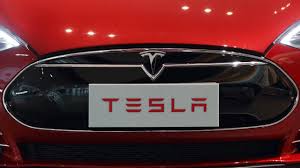For Investors, Tesla Is a Bad Bet

Few if any enterprises have evoked such wide-ranging forecasts as Tesla.
Founder Elon Musk has spread uncertainty by consistently promising production rates and financial performance that he fails to deliver, as well as pledging that Tesla needs no new capital, only to raise $ 8 billion in debt and equity over the past three years.
As for investors, their view of Tesla’s future is a study in extremes. At the positive end, esteemed money manager Ron Baron reckons that the electric car maker could be worth $ 700 billion in a decade, meaning that its share price would jump more than ten fold to exceed $ 4,000. Leading the Wall Street naysayers is JPMorgan, which predicts that Tesla shares will fall to $ 195 by December, a decline of 38%.
Although opinions on what Tesla will do covers a gigantic spectrum, what it has to do to enrich investors can be forecast with reasonable accuracy. Starting with Tesla’s rich valuation––a major handicap for its future stock performance––we can calculate how big and profitable it must be to deliver even moderately good returns. And will need to be both plenty big, and plenty profitable.
Today, Tesla boasts a market cap of $ 53 billion. But since it holds just $ 2.2 billion cash and will need a lot more, it’s reasonable to estimate that Must will have to raise another $ 5 billion in equity over the next year or two. So we start with an equity valuation of $ 58 billion.
Let’s assume investors will require a 8% return on their Tesla shares. That’s probably a bare minimum given that this is the epitome of a high-risk stock. In that case, Tesla would need to grow its value by 51% by the end of 2024. By the end of that five year, four month period, Tesla’s market cap would need to reach $ 88 billion.
Five-plus years from now, it’s likely that Tesla will be a fairly mature company. A reasonable prediction puts its price-to-earnings multiple by late 2024 at 16.6. In effect, that means investors from that point on would expect Tesla to provide 8% returns on consistently growing sales and profits, but with a constant PE, meaning its years of stupendous growth are in the rear-view mirror.
At that PE, Tesla would be generating net earnings of $ 5.3 billion ($ 86 billion divided by 16.6), representing a swing of $ 8.4 billion from its annualized losses of $ 3.1 billion through the first half of 2018.
Today, the world’s most profitable major luxury car producer is BMW, which last year posted after-tax margins of 8.8%. But we’ll accept the view of many analysts that Musk can advance not only automative technology, but profitability, and forecast net margins of 10%, a full 14% above BMW. In that scenario, Tesla would be generating sales of $ 53 billion in just over five years. That’s an annual growth rate of 31%.
Even to achieve these modest returns, Tesla would need to conquer a giant share of the future luxury car market. (Musk says that the Model 3 will be a mass market vehicle, but its current pricing, and the phasing out tax credit as volumes grow, is likely to confine Tesla to the premium category.)
According to a study by market research firm Profshare, the luxury market will grow at nearly 11% through 2024, expanding from current revenues of $ 100 billion to $ 173 billion, or 73%. In the second quarter of 2018, Tesla’s sales were running at an annualized rate of $ 12.2 billion, meaning it holds just over 12% of the market.
At our goal of $ 53 billion by the end of 2024, Tesla would need to grow its sales by $ 40 billion, and grab 30% of the premium car market. It would absorb no less than 54% of the category’s total growth over that period, leaving less than half for its competitors.
Today, a trio of luxury brands from three German carmakers BMW, Mercedes-Benz (Daimler), and Audi (Volkswagen), control almost 80% of the premium market, each holding between 23% and 26%. Tesla would need to steal around 14 points of share from the three German champs, or almost five points each.
“Tesla will be challenged,” says Bart Demandt, automotive analyst and consultant at Carsalesbase.com. “Virtually every luxury player wants to be in the electric car business. Audi is moving ahead, and BMW already has a head-start. It’s a highly competitive market that presents a risk for Tesla.”
Can Tesla get there? It would need to lap a field full of formidable competitors. Keep in mind that Tesla might need to raise a lot more than $ 5 billion in new equity, that an 8% return might not satisfy investors, or that its margins might be only excellent, not a world-besting 10%. A Humphrey Bogart told Mary Astor in The Maltese Falcon on the reasons why he didn’t trust her, “Just look at the number of them.”
Tesla’s road to success also requires by 2024, something like half of all the premium cars on the road are electric vehicles, a multiple of today’s number.
Elon Musk wants his investors to believe in miracles. He’ll need one to make his stock anything but a creaking jalopy in the years ahead.


